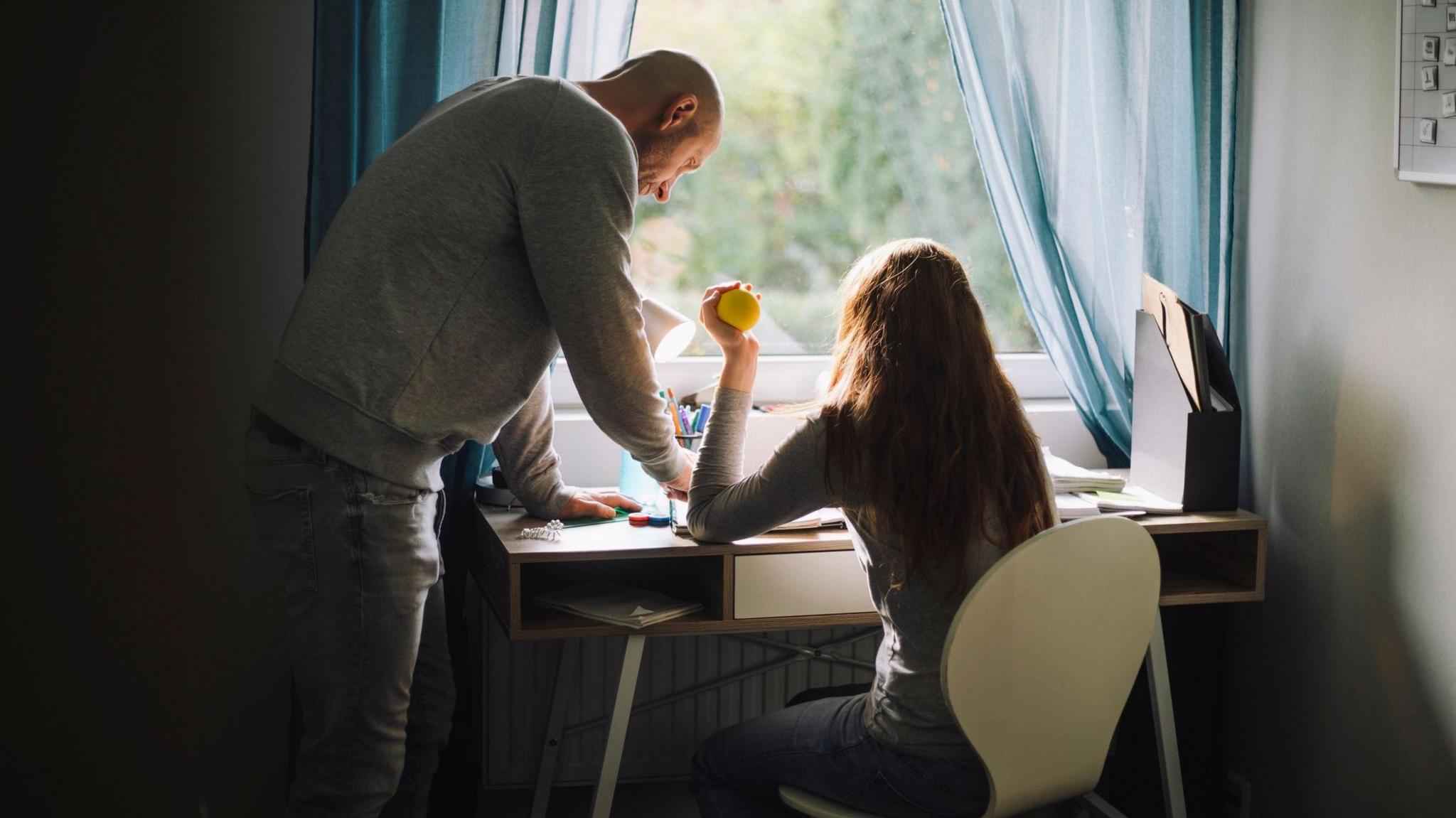'Why I home educate my disabled daughter'
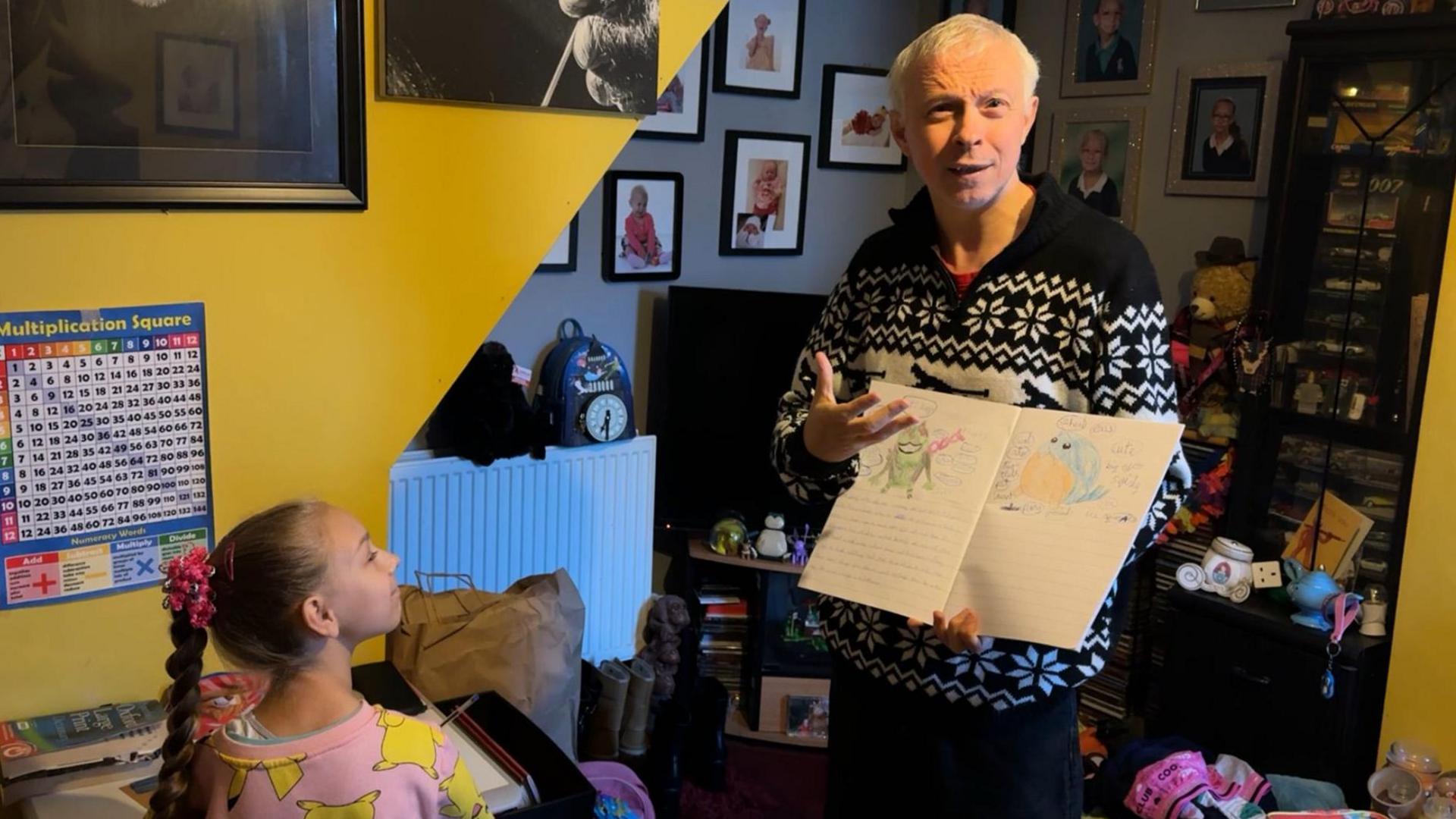
Artist Clarke says he is teaching daughter Dakota at home to protect her mental wellbeing
- Published
Clarke is educating his 10-year-old daughter Dakota at home after becoming concerned that schools are unable to meet her needs.
He is by no means alone - a BBC investigation has found the number of children being home educated in the south of England has more than doubled in the past five years.
Dakota lives with her family in Portsmouth and has cerebral palsy. This is something dad Clarke says means her writing can be slower than other children her age.
Clarke, an artist who is registered blind, says the decision in February to begin teaching Dakota at home was made to protect her mental wellbeing.
"Schools are doing something one day and a different thing another," Dakota says.
"I don't get rushed like I did at school. I'm more relaxed at home."
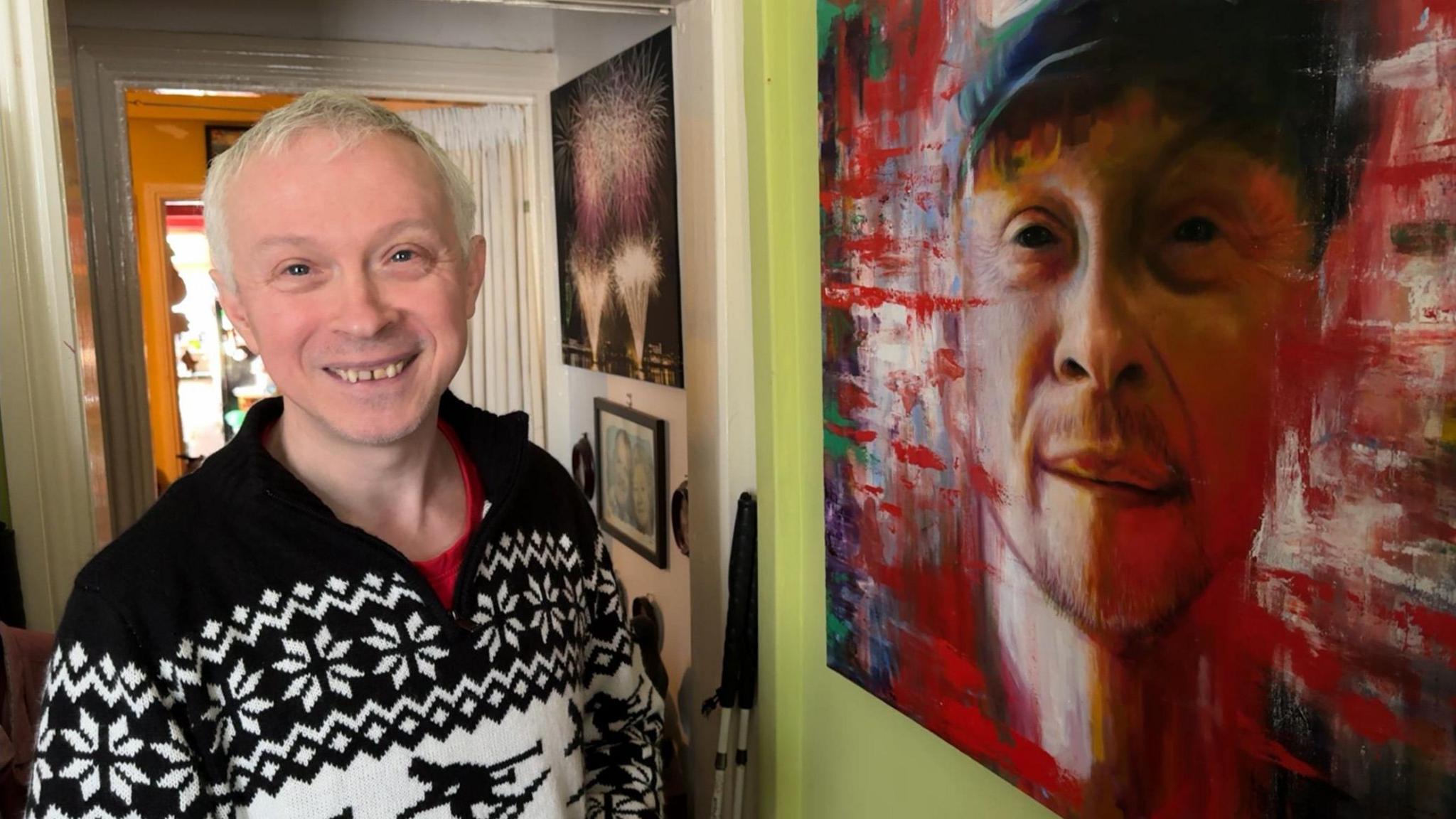
Clarke is blind and is seen here standing next to a portrait drawn by another artist visualising what he sees with his impairment
The number of children moving to home education shot up during the Covid pandemic and has continued to rise.
The latest government figures suggest mental health is the most common reason for the increase over the past five years.
Dissatisfaction with special educational needs and disabilities (SEND) provision has also risen sharply, according to the latest education census, external.
Clarke says taking Dakota out of school was a decision they made together with his wife.
The government requires children schooled at home to receive full-time education - and they do not have to follow the National Curriculum.
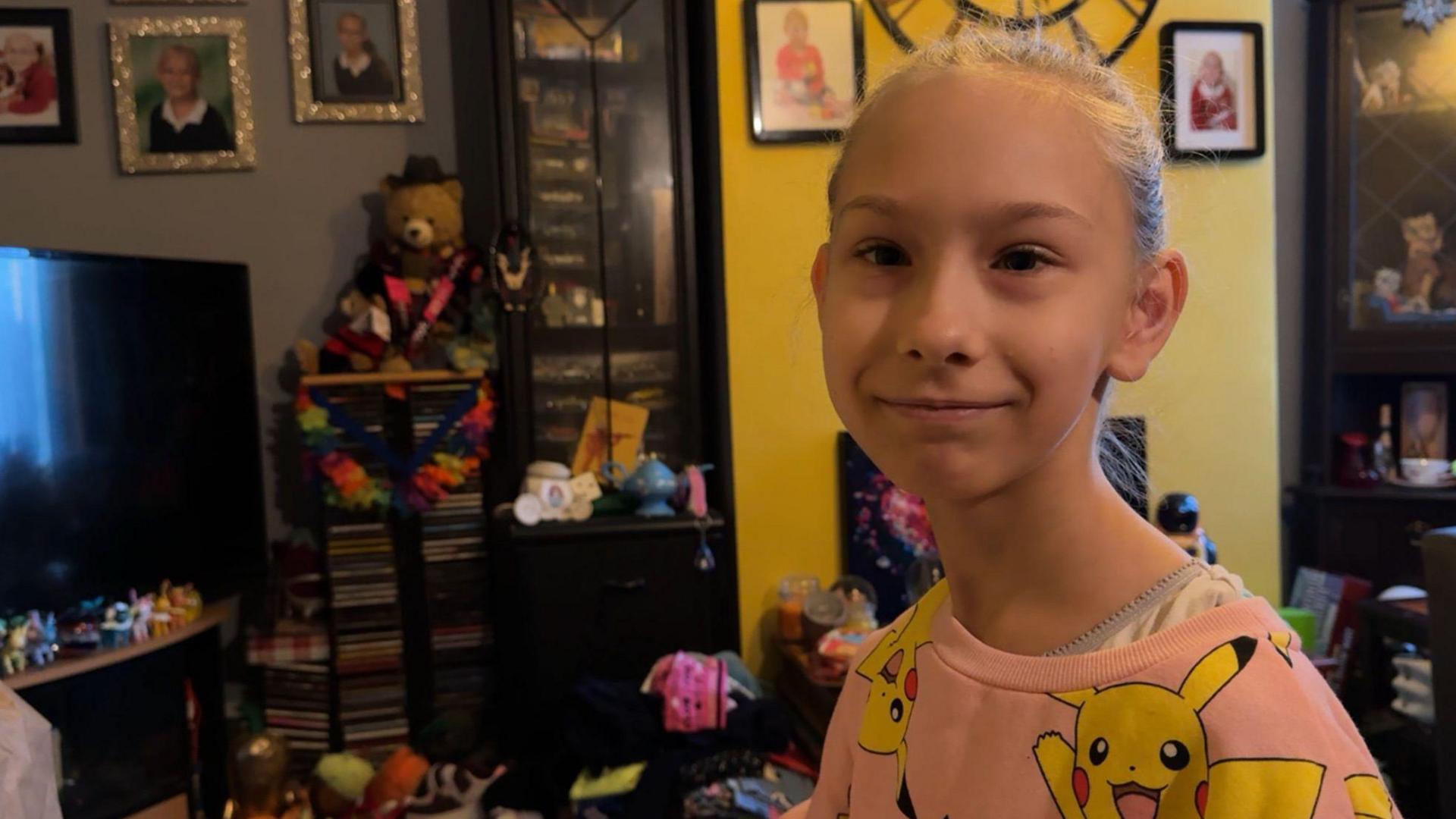
Dakota says her dad is a good teacher apart from "when the calculator on his phone doesn't work"
But Clarke, who left school at 14, says his daughter gets the education she needs to thrive.
"We do study English and maths but we also study things she enjoys like Japanese poetry and animation," he says.
Dakota says her favourite subject is English because she gets to write about Pokemon.
Clarke believes his own visual impairment has helped in the way he teaches Dakota, citing how they need to have continuous conversations about what she writes down.
"She marks her own maths - I'll give her the formula and she'll check the answer with a calculator," he explains.
"If she's got it wrong, she'll go back and talk both of us through it."
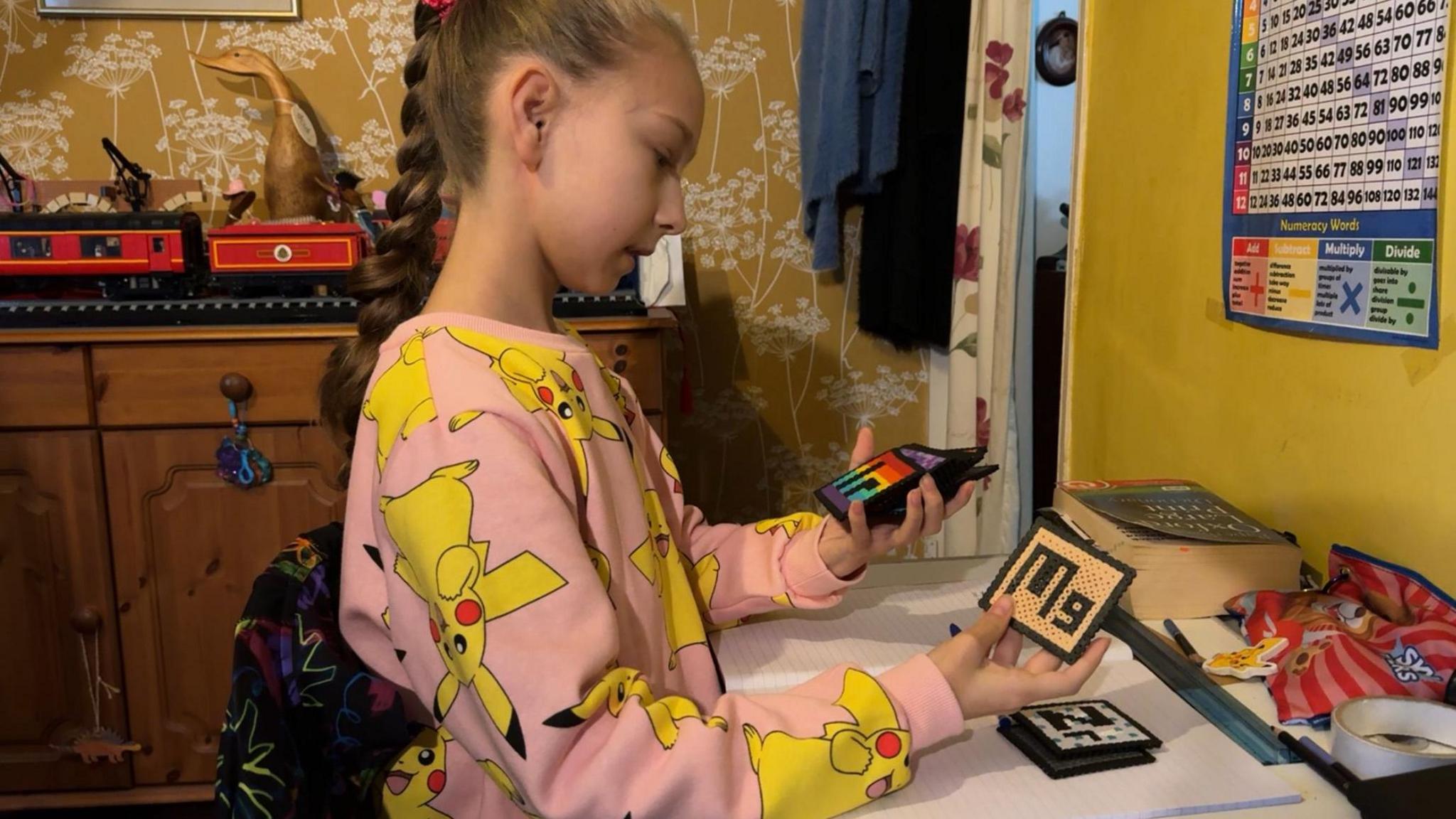
Dakota has created the periodic table of elements using coloured beads
The new Labour government has committed to introducing registers for children not in school. It is currently not compulsory for parents to notify councils if they decide to home educate.
“Our mission is to break down the barriers to opportunity, so every pupil has the best life chances," it says.
"That includes making sure every child is receiving a suitable education for their age, ability, aptitude and any special educational needs whether they are in school or at home.
“We are legislating for Children Not in School registers so local authorities can better identify and support all home educated children, and reforming the SEND system so more children receive earlier and better support to thrive in education.”
'Beautiful relationship'
Running around in the playground or playing in the park is now something Dakota is unable to do because of her disability.
So playing on her VR headset is a place where "disability doesn't exist", her father says.
"I like playing Fortnite and because I have a headset, I can talk to my friends on there and play with them," Dakota says.
Clarke says the two things he misses most since losing his sight are being able to read a book and watching his daughter grow up.
"The last memory I have of her facial features is from three years ago," he says.
"We have the most beautiful relationship because she knows I'm blind but that way we engage with the education together."
Get in touch
Do you have a story BBC Hampshire & Isle of Wight should cover?
You can follow BBC Hampshire & Isle of Wight on Facebook, external, X (Twitter), external, or Instagram, external.
Related topics
- Published3 June 2024
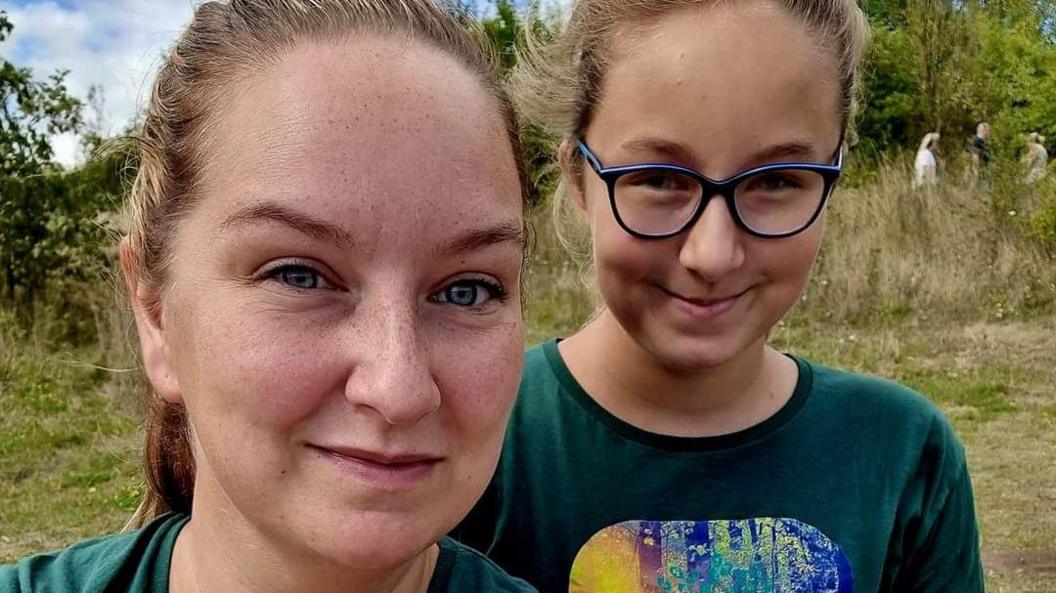
- Published3 June 2024
